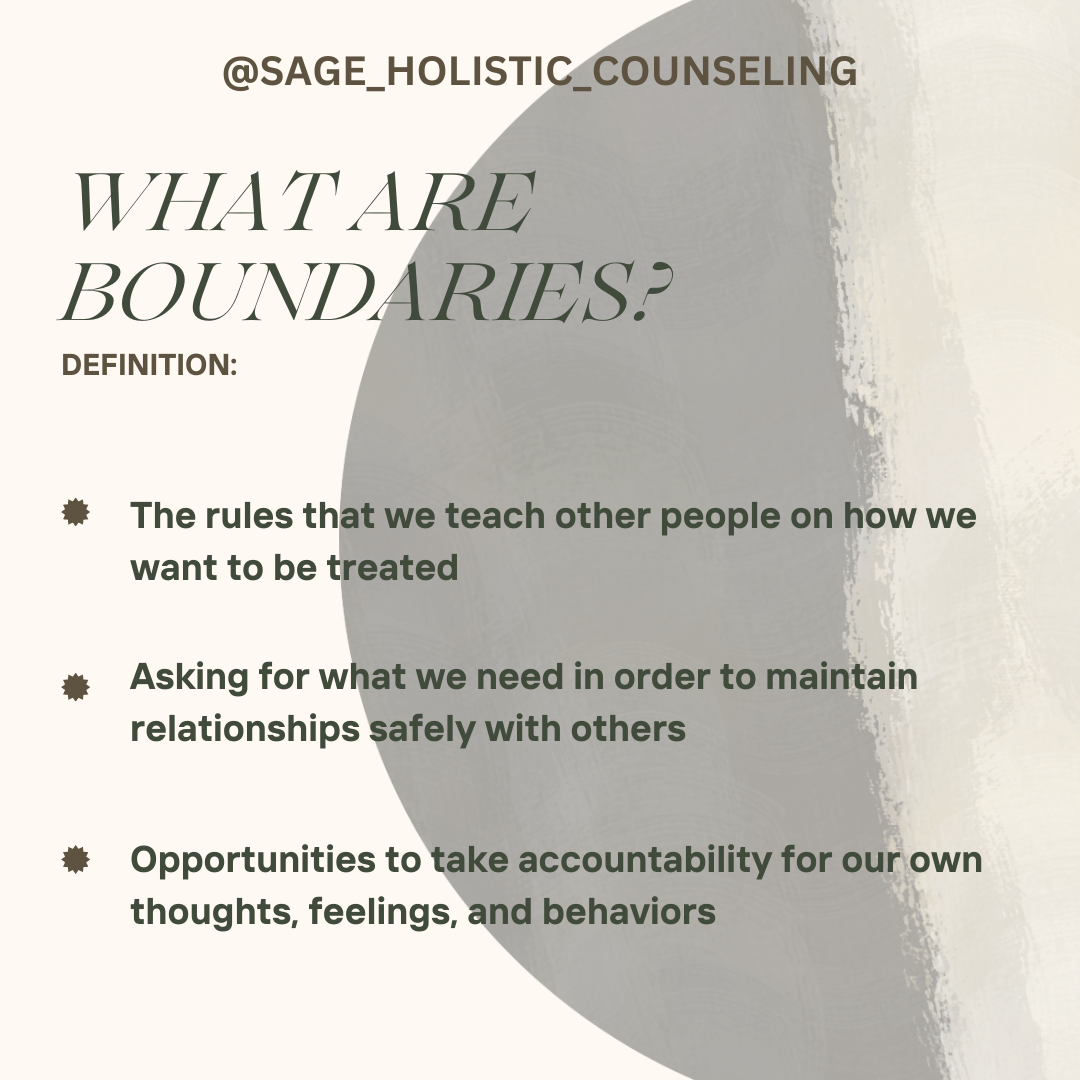"How can I help?" Tips for family members to be more helpful in mental health situations
As a therapist, one of the most popular questions when I meet with family and loved ones is: What can I do to help? When family members ask this question, I can hear the care and concern in their voices. In response, I wanted to gather the best practical tips for loved ones to best support an individual with a mental health condition.
Book Recommendations for Setting Boundaries & Self-Care FOR THERAPISTS, CAREGIVERS, AND HELPING PROFESSIONALS
Books can be a great adjunct to therapy, especially if you are a reader like me! These books are tried and true for therapists, caregivers, and helping professionals looking to manage perfectionism, people-pleasing, and overachieving.
10 wAYS TO DRAMATICALLY INCREASE YOUR ANXIETY
If you are looking to feel MORE anxious or to induce a panic attack, make sure to follow these tips:
Am I A PEOPLE PLEASER?!
People-pleasing, also known as "people-pleasing behavior" or "being a people-pleaser," refers to the tendency of an individual to prioritize the needs, wants, and opinions of others over their own, often at the expense of their well-being and boundaries. People-pleasers often go to great lengths to avoid conflict, seek approval, and make others happy, even if it means sacrificing their needs and desires.
20 Things I’ve Learned from my Clients as a Holistic Therapist
Each client brings their own unique story, challenges, and strengths, teaching me invaluable lessons along the way. Here are 20 things I’ve learned from my incredible clients:
THE SECRET TO AFFIRMATIONS
The underlying principle behind affirmations is the concept of self-affirmation theory, which suggests that people have a basic need to maintain a positive self-image. When individuals repeat positive statements about themselves or their abilities, they reinforce their self-beliefs and shape their self-perception.
PERFECTIONISTS & OVERACHIEVERS: YOU CAN SOLVE ANY PROBLEM USING ONE OF THESE FOUR SOLUTIONS
Perfectionists and overachievers often find themselves caught in the relentless pursuit of flawless solutions. Understanding the steps to problem-solving is crucial, as it provides a structured approach to navigating challenges. However, the real game-changer lies in integrating specific strategies tailored to various problem contexts.
3 minute read: friendship breakups
It is difficult to know when it is time to let go of a friendship, and ending a friendship can be as painful as ending a romantic relationship. Friends play an important role in our lives, but if you are thinking it may be time to dump your friend, you’re probably right. Odds are that minimum, the relationship needs to change.
100 holistic coping skills from a holistic therapist
In today’s fast-paced world, finding effective ways to manage stress and maintain mental well-being is more important than ever. While there are countless methods to cope with life’s challenges, holistic approaches that address the mind, body, and spirit can offer profound and lasting benefits. This comprehensive list of 100 holistic coping skills is designed to provide you with a diverse array of techniques to help you navigate stress, enhance your emotional health, and foster a greater sense of balance and harmony in your daily life.
Struggling with setting boundaries? Here’s three easy steps for people pleasers & perfectionists
Setting boundaries is a journey, not a destination. With practice, you’ll find it easier to protect your well-being and foster healthier, more respectful relationships. Remember, you have the right to define your limits and protect your peace. Start today, and watch how setting boundaries transforms your life for the better.
WHAT ARE BOUNDARIES? PART TWO
If I were to imagine a picture of a rigid boundary, I would imagine a tower with ten-foot thick concrete walls, no windows, surrounded by a moat filled with alligators. The person inside is very safe from potential attacks but is very isolated and disconnected from the world.
what are Boundaries? Part one
Boundaries refer to the limits and guidelines that individuals establish to protect their physical, emotional, mental, and relational well-being. They define what is acceptable and unacceptable behavior, as well as the extent to which individuals are willing to engage with others or allow others to enter their personal space.
Fighting the Sunday Scaries in the Caregiving Professions: Self Care Ideas
For those in the caregiving professions, Sunday evenings can often bring about a sense of anxiety and dread, commonly referred to as the “Sunday Scaries.” The anticipation of the week ahead, coupled with the responsibilities and emotional demands of caregiving, can make it challenging to unwind and relax. However, implementing self-care practices can significantly reduce these feelings and help you start the week with a positive mindset.
Lowering the temperature of difficult conversations
Emotional conversations can quickly escalate, leading to heightened tension and conflict. It's essential to employ strategies that help keep these discussions productive and respectful. Here are five tips to help you lower the temperature of emotional conversations:
HOW TO STOP OVERSHARING IF YOU HAVE POROUS BOUNDARIES
People with porous boundaries might overshare due to a desire for connection and validation, a lack of self-awareness, or an attempt to manage their own anxiety. Oversharing can be a way to quickly establish intimacy or to seek reassurance from others
Overcoming Barriers to Journaling: A Guide to Starting and Sustaining a Journaling Practice
Journaling can be a transformative practice that enhances self-awareness, emotional regulation, and personal growth. By addressing common barriers and setting realistic expectations, you can develop a sustainable journaling habit. Remember, the goal is not to write perfectly but to engage in the process of reflection and self-discovery. Whether you journal daily or once a week, use fancy notebooks or your phone, the most important thing is to start.
Educational Series: What is PTSD? have i experienced trauma?
When I sit with clients, I frequently hear some themes of minimization, invalidation, and comparison like “What happened to me wasn’t that bad, other people have it way worse”. Trauma is inevitable if we live long enough, it is part of the human condition that connects us. Trauma is defined as any event that overwhelms our ability to cope. Traditionally, is differentiated between ‘big T’ and ‘little t’.
Sleep hygiene tips for healthcare workers & therapists
A good night’s sleep is essential for overall well-being, yet many of us struggle to achieve the restful slumber we need. Sleep hygiene refers to the practices and habits that contribute to a good night’s sleep. By incorporating effective sleep hygiene techniques into your routine, you can significantly improve the quality of your sleep and, consequently, your overall health. Here are six tips to help you establish healthy sleeping habits.


















